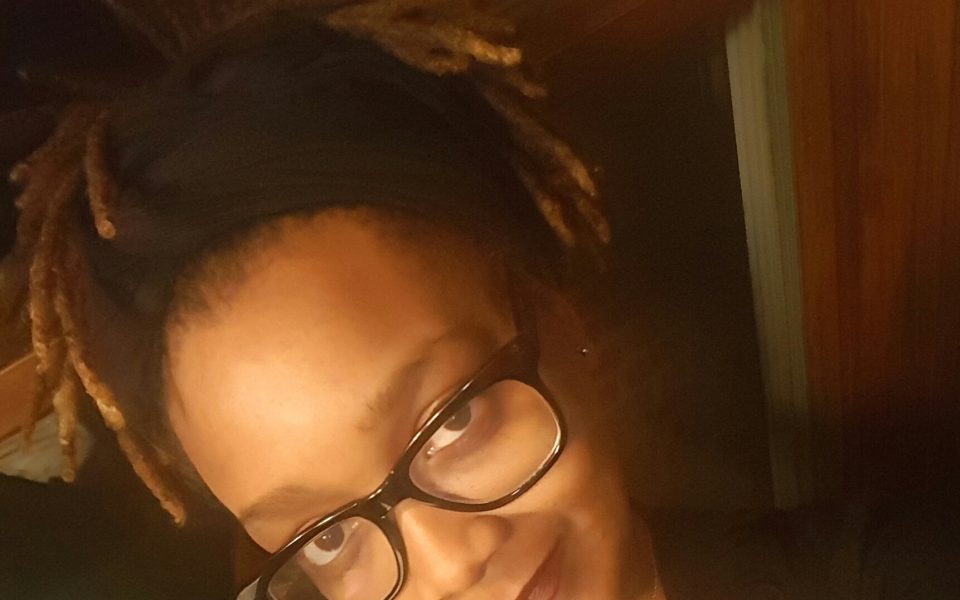I’ve often heard that women go through this period in their lives when they crave getting pregnant.
Regardless of the fact that I am a lesbian and have already given birth, this feeling has not passed me by. Those I’ve told that I want to have another child laugh because my daughter is now 22 and they can’t understand why I would want to endure the process of raising another child. I have concerns about doing it all over again, but it has nothing to do with how old I will be when the child is 18 like they my friends often tease me about.
Once, I heard about a black mother who said she had to teach her son how not to die. That is where my concern lies.
Recently, I begin selling off my furniture so that I could start a grand redesign. My daughter says it feels like I’m selling off our home. A friend commented that I was nesting. This is when it dawned on me that I am going through the ritual that many pregnant women go through — preparing my home for the arrival of a new bundle of joy.
I have always been sure that it was the act of physically giving birth and raising my own child that I wanted.
Then one evening I found myself at Scuppernong Books awaiting the arrival of Alexis Pauline Gumbs. The purpose of her visit was to discuss the book entitled Revolutionary Mothering: Love on the Front Lines. I was drawn to hear her define revolutionary mothering.
I won’t lie, I think a part of me also hoped that this individual, who seemed to be highly enlightened and educated in the areas of the queer black female experience, could explain my need to be a part of a revolution I had not yet understood.
The concept of revolutionary mothering, per the book, is based on the premise that the mothering of marginalized mothers of color is necessary for change to occur in the world and has always been the basis of change that has previously taken place.
While this idea is easy to grasp it is the definition of mothering that has many layers.
Gumbs refers to mothering as “the practice of creating, nurturing, affirming and supporting life.” But this mothering is not reserved for mothers raising their own children. Mothering can be seen in queer societies where individuals have been taken under the wings of others and taught to navigate what can be scary world for a fledging.
Mothering is, in essence, a responsibility to educate.
As I listened to Gumbs read passages of the book discussing how revolutions were started because of the visions of mothers, how wars were won on their backs and races were educated by their minds, I rubbed my empty womb and realized it was not empty at all.
The book includes a piece by Caribbean-American poet June Jordan that had gone unpublished since 1977. Her work speaks about love being a life force. She describes love similarly to mothering which made me go a step further and place mothering in the context of love. By doing this, it felt as if I had come full circle and what has been said for centuries is true: “Love makes the world go around.”
But despite all that, what touched my soul the most was hearing that as part of a marginalized community, particularly as a black woman, I have a responsibility to mother those who are here and those who will come after me.
Watching Gumbs stand before the crowd and utter the words black, queer, revolution, white privilege, equal rights and justice, I felt my own life force becoming empowered. No longer did I feel the need to whisper words as to not offend those who never thought twice about offending me.
I do not have to push a child from womb, however; the knowledge that I possess and the experiences that have endured can be used to inspire. My voice could touch the ears of those who are able to make a change or maybe I could be a syllable in that word that sparks a change.
My womb is my mind and it is the most powerful weapon I have to combat that which oppresses any of the children in this nation.
The night of the book discussion repeatedly plays over in my mind, and with every vision I take something new from the experience. Now it’s time to turn my nesting ritual away from redesigning my apartment to focusing on projects that serve my community.
I just hope the world is ready.
Naari Honor is an editorial intern at Triad City Beat, a student at Guilford College and has been published in the Carolina Peacemaker and Guilfordian student newspaper.
Join the First Amendment Society, a membership that goes directly to funding TCB‘s newsroom.
We believe that reporting can save the world.
The TCB First Amendment Society recognizes the vital role of a free, unfettered press with a bundling of local experiences designed to build community, and unique engagements with our newsroom that will help you understand, and shape, local journalism’s critical role in uplifting the people in our cities.
All revenue goes directly into the newsroom as reporters’ salaries and freelance commissions.


Leave a Reply